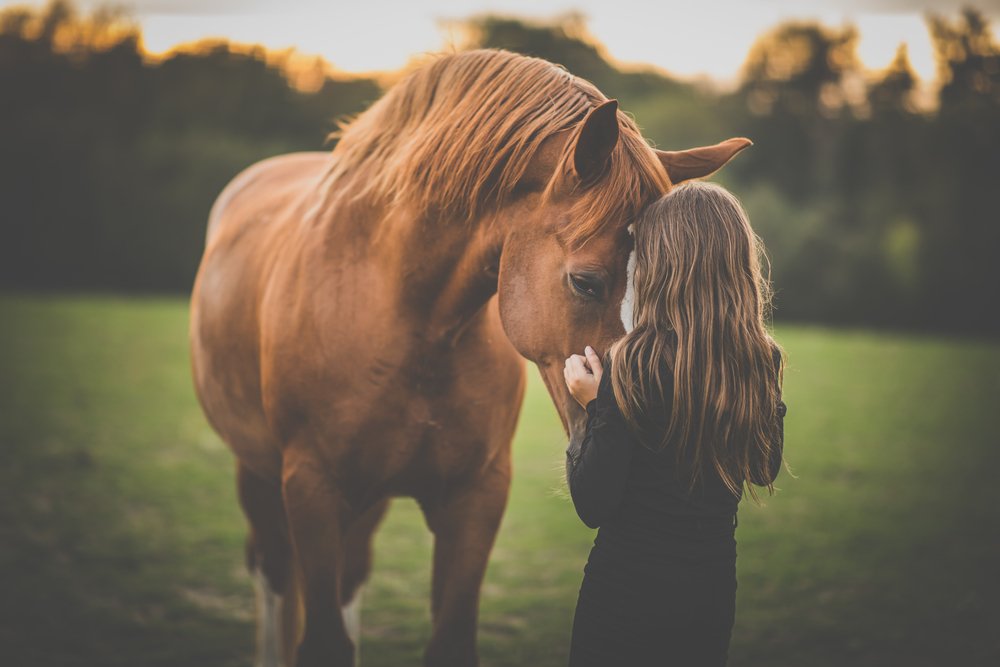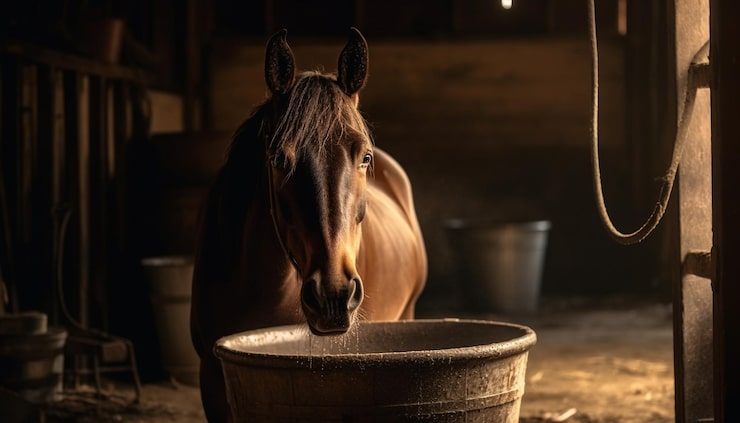As horses age, they exhibit distinct signs that indicate their advancing years. Understanding these signs of aging in horses is essential for providing optimal care and maintaining their quality of life. In this article, we’ll explore the key indicators and how you can support your horse through their golden years.

Understanding the Aging Process in Horses
The aging process in horses is similar to that in humans, where a gradual decline in physical and sometimes mental capabilities occurs. Horses are generally considered seniors when they reach the age of 15 to 20 years. As they age, their bodies undergo various changes that can affect their health and performance.
Physical Signs of Aging
One of the most noticeable signs of aging in horses is a change in their physical appearance. This can include a loss of muscle mass, a swayback, and a greying of the coat, particularly around the face and eyes. Additionally, horses may develop a potbelly due to reduced muscle tone.
Dental Changes
Aging horses often experience dental changes such as worn or missing teeth. This can lead to difficulties in chewing and digesting food, which may result in weight loss. Regular dental check-ups are crucial to manage these issues effectively.
Behavioral Changes in Senior Horses
As horses age, they may exhibit behavioral changes such as reduced activity levels and increased time spent resting. They may also become more docile and less interested in social interactions. These changes are normal and can be managed with proper care and attention.
Exercise and Mobility
Older horses may experience a decrease in exercise and mobility. Joint stiffness and arthritis are common problems, making it essential to tailor exercise routines to their capabilities. Learn more about exercise for older horses to ensure they remain active and healthy.
Dietary Needs
Senior horses often require dietary adjustments to accommodate their changing nutritional needs. High-quality forage, along with senior horse feed, can help maintain their weight and overall health. For more information, visit caring for your senior horse.
Maintaining Health in Aging Horses
Regular veterinary care is crucial for maintaining health in aging horses. Routine check-ups can help identify and address potential health issues early on. Vaccinations, deworming, and dental care should also be part of their healthcare regimen.
Hydration and Nutrition
Ensuring proper hydration and nutrition is vital for senior horses. Dehydration can exacerbate health issues, so always provide clean, fresh water. Learn more about hydration for senior horses.
Comfortable Living Environment
A comfortable living environment is essential for aging horses. Proper bedding and shelter can significantly impact their well-being. Consider the best bedding for senior horses to provide a cozy area for rest.
Emotional Well-being of Senior Horses
Older horses can experience changes in their emotional state. It’s important to provide companionship and social interaction to keep them mentally stimulated and happy.
Social Interaction
Maintaining social interaction is crucial for a horse’s mental health. If possible, allow them to live with other horses to promote companionship and reduce stress.
Enrichment Activities
Engage your horse with enrichment activities that cater to their interests and capabilities. This can include gentle grooming sessions, interactive toys, or leisurely walks.
Understanding Common Health Issues in Older Horses
Aging horses are more susceptible to certain health issues, such as respiratory problems, Cushing’s disease, and metabolic disorders. Regular veterinary monitoring can help manage these conditions.
Joint Health
Joint health is a primary concern for senior horses. Supplements and medications can help alleviate discomfort from arthritis and other joint-related issues. Consider exploring stretching routines for senior horses to improve flexibility.
Pasture Management
Effective pasture management is essential for older horses to ensure they have access to quality grazing and exercise. Learn more about pasture management for old horses.

Frequently Asked Questions
How can I tell if my horse is aging?
Common signs of aging in horses include greying around the face, loss of muscle mass, and changes in behavior. Regular veterinary check-ups can provide more insight into your horse’s health.
What dietary changes should I make for my senior horse?
Senior horses often benefit from specialized feeds designed for their nutritional needs. These feeds are easier to chew and digest, ensuring your horse receives the necessary nutrients.
How can I improve my aging horse’s joint health?
Supplements, gentle exercise, and veterinary care can help manage joint health in senior horses. Consult your veterinarian for a tailored plan that suits your horse’s specific needs.
This article contains affiliate links. We may earn a commission at no extra cost to you.
